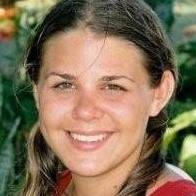Think people are going to enjoy getting to know author JR Creaden. Both of us recall the childhood impact of Dr. Seuss on our joy of reading. Without further ado, I am happy to introduce JR Creaden

JR began her authorial career as a child disgruntled with song lyrics. After some early success with poetry and essays, she spent decades distracted by songwriting and academia until her story dreams became too interesting to keep to herself. A New Morse Code, the first book in JR’s YA scifi series Contact Files, will soon be ready for public consumption or vivisection. Her goal is to share stories that inspire readers to embrace cultural diversity, the promise of science, and the value of humor and imagination to build a future that’s more Star Trek and less 1984. When she’s not writing, JR enjoys exchanging “your mama” jokes with her children, floating in lakes, and slaying virtual dragons.
Links:
And now, for the interview –
1. Did you come across any specific challenges in writing A New Morse Code? What would you do differently the next time?
ANMC offered some challenges from the first day. My kids and I imagined a world where Star Trek the franchise had existed, but so had some of their histories, centuries before our story occurs in an alternate reality. How do I showcase the differences without referencing the original masterpiece? How to stay on familiar ground without confusing the readers or breaking copyright laws?
Next time, I would obviously choose to be a famous, well-respected author who can pitch the story straight to Star Trek in the first place, so it could be adopted into canon, or I’d know precisely how to avoid such conflicts.
2. For your own reading, do you prefer eBooks or traditional paper/hard back books?
Paper or hardback, all the way. I listen to audiobooks a lot, but only because I can’t go more than half an hour without funneling more story into my head. I like the feel of a book, the smell, the weight of it in my hands. EBooks are convenient, but, if I’m on a device, I’d rather be writing my own story.
3. Do you remember the first story you ever read, and the impact it had on you?
Yes. It was “Oh, the Places You’ll Go” by Dr. Seuss. I completely forgot about that story until I found myself stuck in a dream landscape where “some windows were lighted, but mostly they’re darked”.
In retrospect, that book shaped my attitude all through my life. I never questioned life’s “right” to be difficult or challenging, even scary. Expecting that, my optimism remained strong. Because I will succeed! (ninety-eight and three quarters percent guaranteed!)
4. To what extent do you try to broaden your audience? (What role does diversity play in your writing process?)
I definitely hope to appeal to non-human audiences, as I feel they are grossly underrepresented in modern fiction. As far as human diversity goes—my hero is of Irish and Mexican descent, and a bit of a nerd. In later books in the Contact Files series, I will delve into various LGBTQ concerns that just begin to surface in the first book, as well as other lifestyles such as polyamory and asexuality. With a universe full of possibilities, it seems ridiculous to assume every species would behave like the modern Western world, and I do try to show how beautiful and interesting other cultural styles can be.
5. What were you like as a child?
I spent a lot of time in trees and creeks, book in hand. My favorite games were playing pretend—spy, detective, survey taker. With my terrible eyesight and genetic clumsiness, I wasn’t one for sports, though I loved riding bikes, swimming, and swinging. I was forever singing—it wasn’t until I began playing guitar that that became socially acceptable.